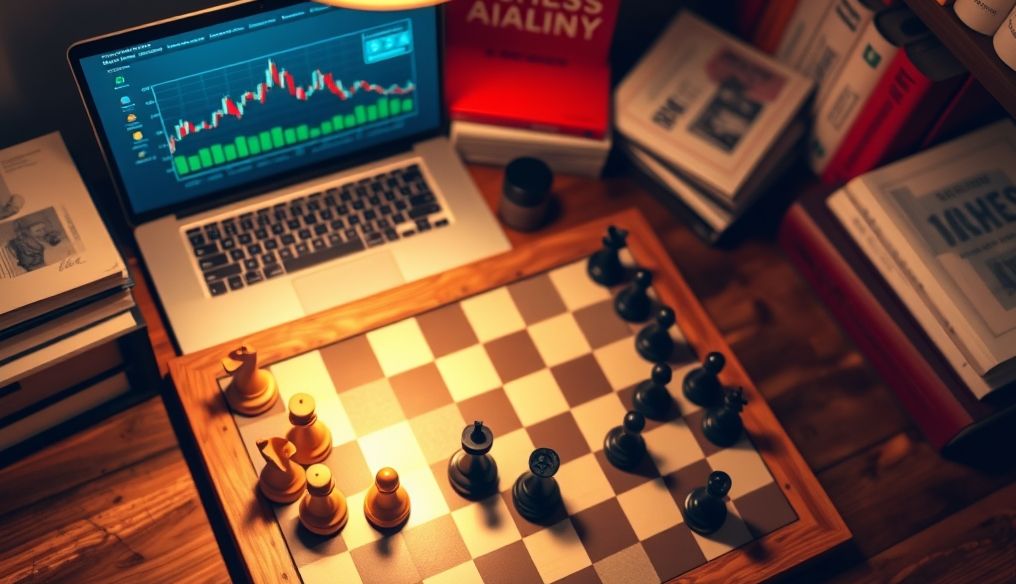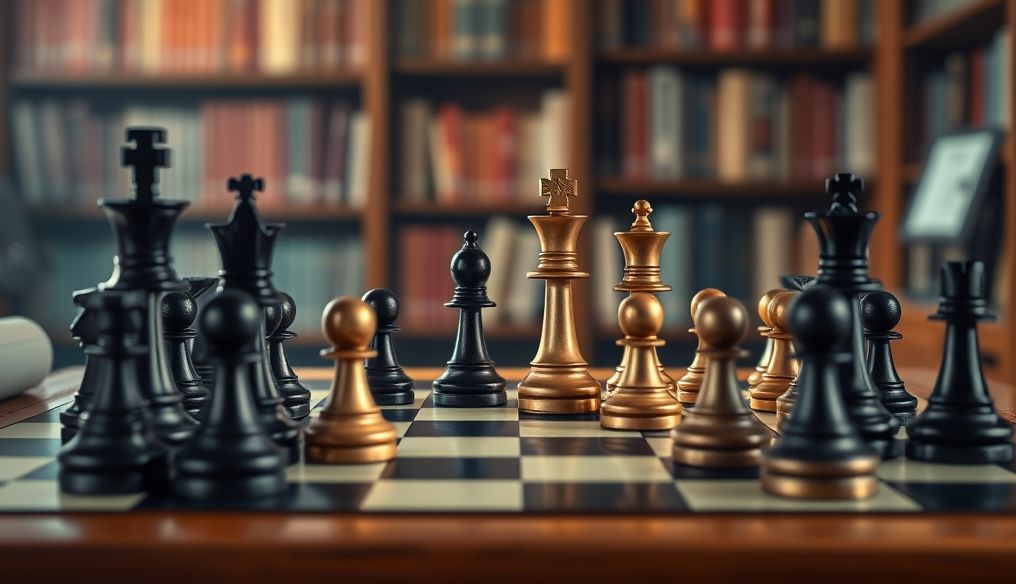How Does Chess Benefit Strategic Thinking and How Can It Be Applied in Daily Life?
Chess, the royal game, is not just a means of entertainment, but a powerful tool for developing strategic thinking. For centuries, chess has been considered a mental sport that enhances cognitive abilities and helps develop planning and decision-making skills. In this article, we will explore the many benefits of chess and how these acquired skills can be applied in daily life.
Chapter 1: Chess and Strategic Thinking - An Overview
Strategic thinking is the ability to analyze the current situation, anticipate potential outcomes, and develop a plan to achieve desired goals. Chess provides an ideal environment for developing these skills by:
- Analyzing the situation: The player must assess the positions of the pieces and identify the strengths and weaknesses of each side.
- Planning for the future: Chess requires thinking several steps ahead and anticipating the opponent's reactions.
- Making decisions: The player must choose the best available move based on analysis and planning.
Chapter 2: Improving the Ability to Plan and Anticipate
One of the most prominent benefits of chess is improving the ability to plan and anticipate. With each move, the player must think about the potential consequences and anticipate the opponent's reactions. This continuous exercise enhances the ability to plan for the future in real life.
Practical Examples:
- In business: Planning skills learned from chess can help in developing effective marketing strategies and anticipating competitor moves.
- In personal life: These skills can be used in financial planning, setting career goals, and managing time effectively.
Chapter 3: Enhancing the Ability to Solve Problems and Make Decisions
Chess is full of challenges and complex situations that require innovative solutions. The player learns how to analyze problems, identify possible solutions, and choose the best solution based on the available circumstances. This skill is essential in all aspects of life.
Practical Examples:
- In the workplace: Problem-solving skills learned from chess can help in dealing with technical challenges, finding solutions to crises, and making tough decisions under pressure.
- In daily life: These skills can be used to solve family problems, manage conflicts, and make sound financial decisions.
Chapter 4: Developing Focus and Attention
Chess requires intense focus and careful attention to detail. Any slight distraction can lead to losing the game. This continuous exercise enhances the ability to focus and pay attention in daily life.
Statistics:
Studies have shown that regular chess practice increases the ability to focus by up to 25%.
Chapter 5: Boosting Memory and Learning Ability
Chess requires remembering many moves and strategies. The player learns how to store and retrieve information quickly. This exercise boosts memory and learning ability.
Practical Examples:
- In studying: Memory skills learned from chess can help in remembering important information and improving academic performance.
- At work: These skills can be used to remember client names, project details, and important work-related information.
Chapter 6: Enhancing Creativity and Innovation
Chess is not just a logical game; it is also a creative game. The player learns how to think outside the box and find innovative solutions to complex problems. This exercise enhances creativity and innovation.
Practical Examples:
- In the field of art: Creativity skills learned from chess can help in finding new and innovative ideas in the field of painting, sculpture, and music.
- In the field of science: These skills can be used to find new solutions to scientific problems and develop innovative technologies.
Chapter 7: Boosting Self-Confidence and Competitiveness
Winning in chess requires self-confidence and the ability to compete. The player learns how to handle pressure, make tough decisions under pressure, and achieve success. This exercise boosts self-confidence and competitiveness in daily life.
Practical Tips:
- Challenge yourself: Play with stronger players to improve your skills.
- Learn from your mistakes: Analyze the games you lost to identify weaknesses and work on improving them.
- Be patient: Success in chess takes time and effort.
Chapter 8: Chess as a Global Language for Strategic Thinking
Chess transcends linguistic and cultural barriers; it is a global language understood by everyone. By learning chess, individuals from different cultural backgrounds can communicate, collaborate, and exchange ideas. This common language enhances global strategic thinking and helps build a more interactive and collaborative global community.
Chapter 9: How to Start Learning Chess and Developing Strategic Thinking?
Starting to learn chess is easy and accessible to everyone. There are many resources available online and in local libraries. Start by learning the basic rules of the game, then move on to studying advanced strategies and tactics. Remember that continuous practice is the key to improving your skills.
Useful Resources:
- Websites: Chess.com, Lichess.org
- Books: "My 60 Memorable Games" by Bobby Fischer, "Logical Chess: Move By Move" by Irving Chernev
Chapter 10: Conclusion
Chess is more than just a game; it's a powerful mental exercise that enhances strategic thinking and improves cognitive abilities. By learning chess, individuals can develop planning, problem-solving, focus, memory, creativity, and self-confidence skills. These skills are essential for success in all aspects of life. So, start learning chess today and enjoy the many benefits it offers.




